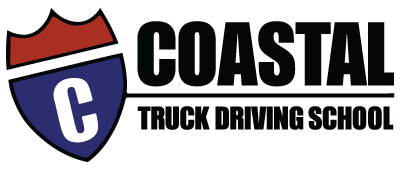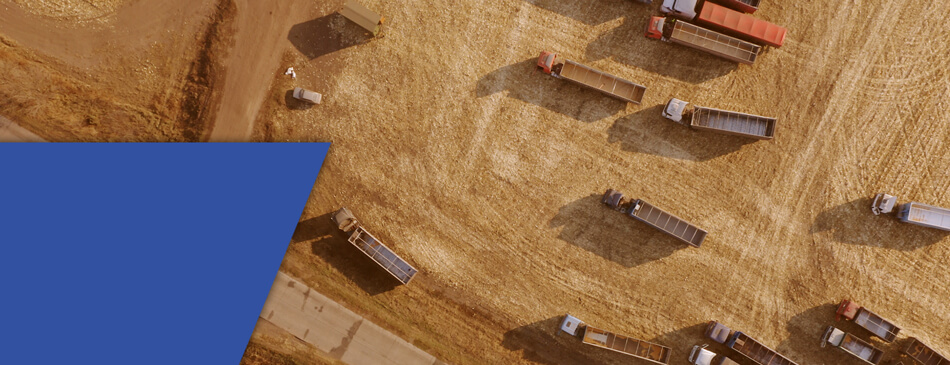The Different Types Of CDLs
If you’re interested in driving trucks for companies as a new career path, you may think that the driver’s license you got when you were 16 is enough to take the wheel – but that’s not the case! You cannot start your truck driving career without getting a commercial driver’s license (CDL).
A CDL is a driver’s license required by law to operate large, heavy, or placarded hazardous material vehicles in the United States when used for commercial purposes. There are many distinctions between the different types of CDLs and which vehicles you’re permitted to drive.
If you need a closer look at what types of CDLs you can apply for when seeking to take the CDL exam, Coastal Truck Driving School has developed this guide that’ll explain each CDL class and what they mean.
Are you interested in training to receive a CDL so you can begin your new truck driving career? Apply today to Coastal Truck Driving School and get trained in as little as six weeks. Call us today to learn more at 1-800-486-3639.
What Is a Class A CDL?
A Class A CDL is a type of CDL needed to drive any combination of vehicles with a gross combination weight rating (GVWR) of 26,001 or more pounds, provided the towed vehicle is heavier than 10,000 pounds. With the Class A CDL under your belt, you can drive the following types of vehicles:
- Tractor-trailers
- Truck and trailer combinations (truck-trailers)
- Tank vehicles
- Livestock carriers
- Flatbeds
If you have additional proper endorsements (special licenses for certain vehicles) on your CDL, such as passenger, tank, or hazardous materials, you may also be qualified to drive Class B and Class C vehicles. Yet, to do that requires you to take a specialized test separate from the CDL exam.
In recent years, there has been a significant increase in trucking companies using truck-trailers versus tractor-trailers. Truck-trailers are often classified as Class B vehicles with a fifth wheel and trailer; however, you still need a Class A CDL to drive them since they weigh over 10,000 lbs.
If you need business-to-business training to drive company trucks, depending on which type of CDL you desire, Coastal Truck Driving School has the curriculum you need. You’ll learn what companies expect from their truck drivers and how to transport their materials. Our job placement advisors can also help you find a job after graduation.
[Related: How Long Does It Take to Get A CDL?]
What Is a Class B CDL?
Class B CDLs are needed to operate any vehicle that isn’t hitched to a trailer. This includes commercial trucks that have an attached cab and cargo area with a combined weight greater than 26,000 pounds. That criterion includes trucks with a detached towed cargo vehicle that weighs less than 10,000 pounds.
This type of CDL most commonly allows you to drive large passenger buses and segmented buses. Some of the trucks you can drive with a Class B CDL include:
- Straight trucks
- Box trucks
- Dump trucks with small trailers
- Tractor-trailers
With endorsements, your Class B CDL may also permit you to drive Class C vehicles, as listed below. Overall, Class B CDLs allow for more versatility in commercial driving.
[Related: Getting A CDL in Louisiana]
What Is a Class C CDL?
The Class C CDL covers vehicles you can drive that you are otherwise unable to with Class A and B vehicles. Class C CDLs permit you to drive vehicles designed to transport 16 or more occupants, such as passenger vans. It is also the type of CDL needed to transport hazardous materials (HazMat), that are classified as hazardous under federal law. You can also drive combination vehicles that can’t be driven under Class A or B CDLs.
Other vehicles you can drive include:
- Double/Triple Trailers
- School Buses
- Tank Trucks
A Class C CDL is also needed to drive a vehicle with a GVWR of less than 26,001 pounds or a vehicle towing another vehicle that weighs less than 10,000 pounds. This type of CDL is a good choice if you want to drive smaller commercial vehicles.
What is a Commercial Learner’s Permit (CLP)?
The CLP is a permit authorized by the state you live in that allows you to practice driving a commercial vehicle and take steps to earn a CDL. But, there is a mandatory 14-day waiting period before you can take the leap and go through the CDL licensing test. This waiting period is instituted to give beginner drivers the necessary training on driving trucks.
According to the FMCSA, to receive a CLP, your driving record for the last ten years in all fifty states and the District of Columbia gets checked for any violations. You may need to bring in proof you are medically qualified to drive safely, along with other specific documents that prove your name and the address where you live.
As of February 7, 2022, this training must be compliant with Entry-Level Driver Training (ELDT) standards adopted by the FMCSA and truck driving industry. This means beginner drivers cannot test for the CDL exam on their own. Instead, they must contact a driving school that is registered with the FMCSA, like Coastal Truck Driving School, to get the training they need.
[Related: What is ELDT?]
How To Get Your CDL With Coastal Truck Driving School
So how do you get the CDL type that fits the truck driving career you want? To be eligible for a CDL in Louisiana, you need to be at least 18 years old. There are strict federal and state guidelines, and you have to pass both a written knowledge exam and a driving test. Coastal Truck Driving School will teach you what information you need to be a success in school and on the road.
The new ELDT standards go into effect on February 7, 2022. If you have a CLP and want to take the first steps toward your new career as a truck driver, Coastal Truck Driving School is registered by the FMCSA. We can help you get the training you need to succeed at the CDL exam.
Get the Type of CDL You Want To Begin Your Truck Driving Career
Once you get your CDL, you can start your exciting truck driving career. If you’re interested in obtaining any type of CDL, receive an ELDT-standard education at Coastal Truck Driving School. Our admissions team can answer any question about truck driving classes and getting a CDL in your area. Take a right turn towards your new career, and contact us today!
Apply To Coastal Truck Driving School Today
Take the first step into your truck driving career and apply to our truck driving schools in Louisiana for CDL training today. Our admissions team is available to answers any questions or concerns you may have about the application process, tuition, housing, and more.

